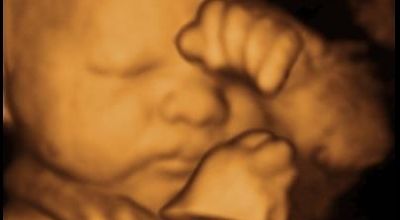Arkansas Bans Abortion at 12 Weeks
Arkansas adopted the most restrictive abortion law in the United States on Wednesday, mostly banning the procedure after 12 weeks of pregnancy as both houses of the state legislature overrode the governor’s veto.
The law, the Arkansas Human Heartbeat Protection Act, will likely go into effect in August, if it survives expected legal challenges.
The Republican-controlled House voted 56-33 on Wednesday to override the veto by Democratic Governor Mike Beebe, which followed the state Senate’s override on Tuesday. In Arkansas, lawmakers can override a veto with a simple majority vote.
Arkansas will have the earliest abortion ban in the country, according to the Guttmacher Institute, a research group that supports abortion rights.
The measure prohibits most abortions at about 12 weeks of pregnancy, once a fetal heartbeat can be detected by a standard ultrasound. It includes exemptions for rape, incest, danger to the life of the mother and major fetal conditions. Doctors who violate the prohibition would have their licenses revoked by the state medical board.
“This bill seeks to limit those abortions that are done for birth-control purposes,” said Jerry Cox, president of Family Council of Arkansas, which supports the measure. “This is the strongest pro-life bill passed in Arkansas since the (Supreme) Court handed down the Roe v. Wade decision in 1973.”
Cecile Richards, president of Planned Parenthood Action Fund, said her group was deeply disappointed.
“The majority of Arkansans—and the majority of Americans—don’t want politicians involved in a woman’s personal medical decisions about her pregnancy,” she said.
Shift to Statehouses
Battles over abortion in the United States have largely shifted from the federal courts to statehouses.
States in 2011 passed a record-breaking number of new abortion restrictions, 92, and in 2012 passed the second-highest number, 43, according to Guttmacher.
This year, for example, the Indiana Senate passed a bill that would make the state the ninth to require an ultrasound prior to an abortion.
In Arkansas, the fetal heartbeat bill was one of several bills introduced by Republicans this year seeking to restrict abortion. This is the first time the party has controlled both chambers since the Reconstruction era following the Civil War.
Under another law that took effect February 28, Arkansas bans most abortions after 20 weeks. That measure also became law after legislators overrode the governor’s veto.
In both of his veto override letters, Beebe questioned the constitutionality of the bills. He said the bills contradicted the 1973 Roe v. Wade ruling that legalized abortion until a fetus could viably survive outside the womb. A fetus is generally considered viable at 22 to 24 weeks.
Challenge Expected
The ACLU of Arkansas was expected to challenge the 12-week ban in court.
Holly Dixon, an attorney with the ACLU of Arkansas, said that if the 12-week ban is successfully challenged in court, then the 20-week ban would still stand.
Previous Arkansas law limited abortions after 25 weeks.
Laurie Lee, a resident of Cabot, Arkansas, said that the newly passed 12-week law is a reflection of the will of the people of the state.
“I am encouraged as a woman and a mom,” she said. “I’m thankful to the men and women of the Arkansas legislature for standing on the promises they made to Arkansans to vote according to the views and morals of the citizens they represent.”
Reporting by Suzi Parker; Editing by Corrie MacLaggan, Gary Hill, Leslie Adler, Steve Orlofsky and Lisa Shumaker















































